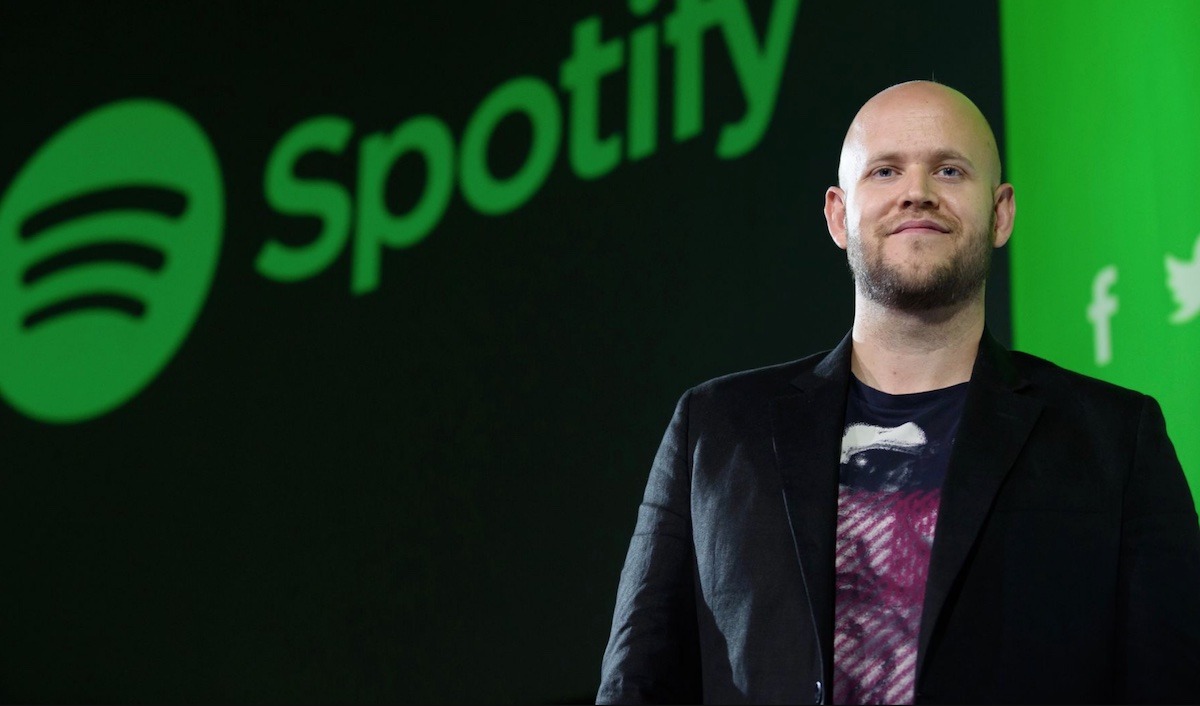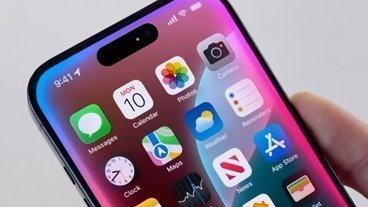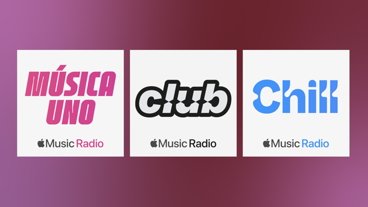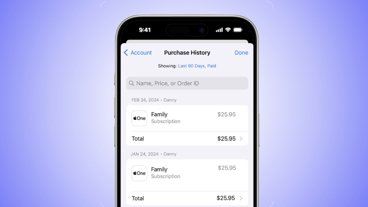In an interview detailing Spotify's long-term profitability goals, CEO Daniel Ek says his company's strength in the fact of rivals like Apple Music is that it can "play nice" on any platform.
The streaming company on Monday announced a number of new endeavors, including a "HiFi" lossless streaming option and exclusive podcasts. In the wake of that event, Ek sat down with The Verge to discuss some of those features and Spotify's broader plans.
On its competition with Apple and Amazon, The Verge asked if Spotify was considering first-party hardware to compete with the options available from its rivals. Unlike other companies that have music or podcast streaming services, Spotify doesn't make its own hardware.
"I would have been a lot more concerned if consumers were locked into just one ecosystem," Ek responded. "If it was just an Apple, or just a Google, or just an Amazon that kind of owned the consumer across their entire ecosystem."
The Spotify chief executive added that Apple is "very strong on mobiles," Amazon shines in the home audio space, and Google is strong in the automotive industry because of Android Auto.
"And the one thing that is true about Spotify is we play nice on all of them, and I believe we're the only player that has that relationship where we're now on 2,000 devices, and we play nice on all of them," he said.
Ek also touched on Spotify's various business models, including running ads and selling premium subscriptions. Both of those options, he said, are likely here to stay.
"You had broadcasting that only had ads and then you had cable that was the only subscription, but the reality is it converged because it turned out that the better consumer experience was the combination of both," Ek said. "I think you're going to find that into the future of the internet, too, is that we can deliver a great user experience with both advertising and subscription, and I think the future for us is both and a la carte, as well."
Additionally, one of Spotify's long-term goals is to create an ecosystem that can sustain creators and musicians with opportunities for growth, engagement, and monetization. Ek called it a "long, long-term goal."
On the metrics of success for exclusive podcasts, Ek said there are a number of them. He pointed out the company's exclusive deal with Joe Rogan, and added that the average listener on Spotify is listening to more podcasts than before.
And as far as the threat from buzzy, audio-based social media platform Clubhouse, Ek said that Spotify is paying as much attention to the platform as they are to "Fortnite" or "Minecraft."
"All forms of media and entertainment is minutes that could have been spent listening to audio instead. So we're definitely paying attention to it," he said.
Apple is said to be working on its own premium and exclusive podcast content in a bid to compete with Spotify and Amazon. In February, the company announced a tie-in podcast for its Apple TV+ series "For All Mankind."
 Mike Peterson
Mike Peterson







-m.jpg)






 Charles Martin
Charles Martin
 Christine McKee
Christine McKee
 Wesley Hilliard
Wesley Hilliard
 Malcolm Owen
Malcolm Owen
 Andrew Orr
Andrew Orr
 William Gallagher
William Gallagher
 Sponsored Content
Sponsored Content








5 Comments
14 years in business. Over $4 billion in losses during that time. But they plan on making money someday.
Spotify seem to see two Apple Incs.:
The reality is that despite the fanfare and huge user numbers there is a significant and growing viability problem to Spotify. It doesn't seem to be one that people care to talk about either because somewhere on wall street there is a daydream where Spotify can keep finding new users, or convert free users into full-fee paid users, or put the fees up on paid users without consequence.
Spotify's own financial results show that their paid users pay only $4 per month on average – this is less than half their monthly asking price, and shows how Spotify are using their dominant position to gobble up the market (dare I say anticompetitive?). Additionally Apple aren't taking significant funds from Spotify as Apple has revealed only a small number of Spotify users subscribe through IAP, and of those that do, none pay more than 15% to Apple.
So with the Spotify business running with heavy losses due to unsustainable discounting and a growing landscape of competitors offering more than just music - Spotify has a problem, a big fn problem.
They don't have the resources, expertise or early-advantage to make them a player in other forms of media, and the growing number of competitors means they'll actually have to compete to acquire new users. Interestingly no big players are attempting to buy Spotify either - because they can do basic maths and aren't living the aforementioned 'daydream'.
So what can Spotify do to fix all of the those heavily discounted premier tiers they have given out?
300 million monthly users and Spotify still cannot make a profit.